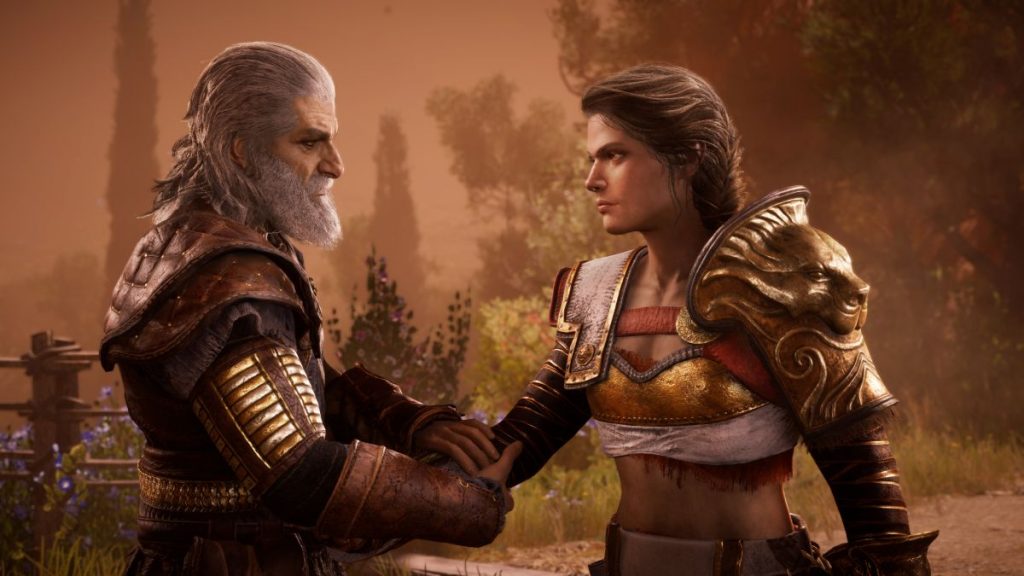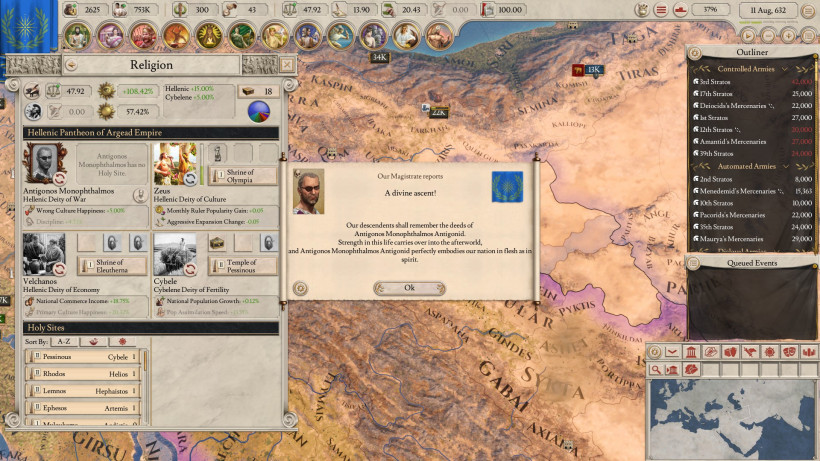You’ll probably have noticed by now, but last friday Ghost of Tsushima was released. Many people, including our own Dr. Random were quite hyped for the game. You can’t visit any website about games without seeing something about Tsushima. Luckily for you, we have dug up some other interesting news items and features!
Ghost of Tsushima round-up
Instead of giving every piece on Ghost of Tsushima their own part in the bulletin, this part will give you an overview of some of the cool articles which were published in the past weeks about the game. It saves you some clicks, and reading the same info about the game over and over again!
There has been a lot of praise for the games depiction of Japanese culture. Whilst many feared it would be a westernized view of Japan seen as though the developers aren’t Japanese, the game is credited (especially in Japan) for its accurate portrayal of certain cultural elements. Eurogamers Chris Tapsell had a talk with Brian Fleming and Jason Connell, the co-founder of dev Sucker Punch and creative director for the game. In the talk, they discuss the hours of research which had been done, and the use of a Japanese localisation team. With the help of the localisation team, Sucker Punch was able to create a more truthful 13th Century Japan.

This however does not mean that the game is without it’s inaccuracies. Take sake for example. I know nothing about the medieval way of making sake, but Kotaku’s Brian Ashcraft certainly does. Ashcraft digs deeper into one of the breweries in the game, and talks how the items are indeed connected to medieval sake-making, but are 15th Century (instead of the 13th Century setting of the game). There are more of these inaccuracies which do not spark the eye immediately. More often than not, only specialists would spot these differences. Ashcroft notes some other inaccuracies, such as wrong types of foiliage and wrong clothing. However, Ashcroft is convinced that 100 percent historical accuracy was never the goal: the game is not a documentary. Seen as though the Nagasaki tourism industry has also embraced the game and dedicated a website to it, Ghost of Tsushima gets away with historical inaccuracies for the sake of the game (yes, that was a pun).
Aside from discussions about historical (in)accuracies, discussions about the portrayals of the Mongolians also float around the internet. Karen Chiu of the South China Morning Post writes on online discussions on the Mongolians, and if they were Chinese or not. The Mongolians are the sole enemy in the game which the Japanese protagonists must fight to reclaim their freedom. However, the enemy it a purely Mongolian force, which was historically not the case (the invasion force also held Chinese and Korean warriors). Aside from the inaccuracies and online discussions, Ghost of Tsushima is a fun game. Want more Ghost? Check out our stream of last Tuesday where we discuss some very interesting stuff (historical and game-wise)!
Ubisoft minimized female protagonists
With Ghost of Tsushima dealt with, it is time to focus on the other big news item of this week: Ubisoft being dicks. Aside from all harassment cases going around, and the departure of some key people (men) in the company, the news broke this week that Ubisoft were actively minimizing female leads in their games, especially in Assassin’s Creed. According to a report on Bloomberg, games such as Syndicate, Odyssey and Origins were supposed to have female leads. Kassandra in Odyssey was supposed to be the only lead in the game, but the writers had to incorporate a male lead because ‘female leads wouldn’t sell that well’. Read more on another scandal at Ubisoft on PC Gamer. It seems that the bottom of the pit hasn’t been reached yet for Ubisoft.

One year of Imperator: Rome
Imperator: Rome was released last year, making it the next grand-strategy Paradox game. However, it became apperant that the game wasn’t up to Paradox-standards just after release. Timothy Borsilli of Strategy Gamer rounded up the past year and looked where the game was now. And it’s not bad. After several patches, some of the early frustrations have been taken out. Especially with a new patch on the way, it seems that Imperator: Rome can finally live up to its Paradox name (even though it cannot really be compared to the succes of EUIV). Read more on Borsilli’s takes on the game, and how it will more forward here!

Video Games do not lead to violent behavior
You might be thinking: ‘not this discussion again’. And you are completely right. But new research done by New Zealand’s Massey University shows that it is actually the case. The research team reanalysed 28 studies, combining the data of 21,000 people around the world. Their conclusion: the statistics are unable to support the hypothesis that video games have a meaningful impact on youth agression. Alex Hern of The Guardian has unpacked the research, which you can read here (Open Access!) Even though we already knew this, at least you now have new research to link to when you find yourself in a discussion about video games and violence!
How do you create a strategy game?
Ever wondered how Old World was built? Well, you can now check out an interview with Leyla Johnson (CEO of cev Mohawk Games and Head Writer for Old World) with the Moonlight Game Devs. In a 30-ish minute video they talk about lots of stuff, from the start of the company, the development of Old World and the future!
Northgard: Uncharted Lands
Remember Northgard, the Viking strategy game by Shiro Games? Well, they’re now developing a board version of the game! Just yesterday, they launched a Kickstarter, which reached it’s goal in 4 hours (!!) You can still back them however. With either a pledge of €50 or €70, you’ll get the game (somwhere in 2021). The more expensive version will also get you the expansion pack next to the base game! Check it out here.
Stratigraph round up
In our only Stratigraph of the week, we talked about the rejection of the mobile version of the game Attentat 1942 by Google in certain countries. Because of the portrayal of Nazi symbolism in the game, Google refuses to give the game a green light. This is very frustrating for the devs, as they try to educate with their game (and are very succesfull in doing so). Attentat 1942 shows how powerful a well written story can be for historical video games. Read more in the Stratigraph!
